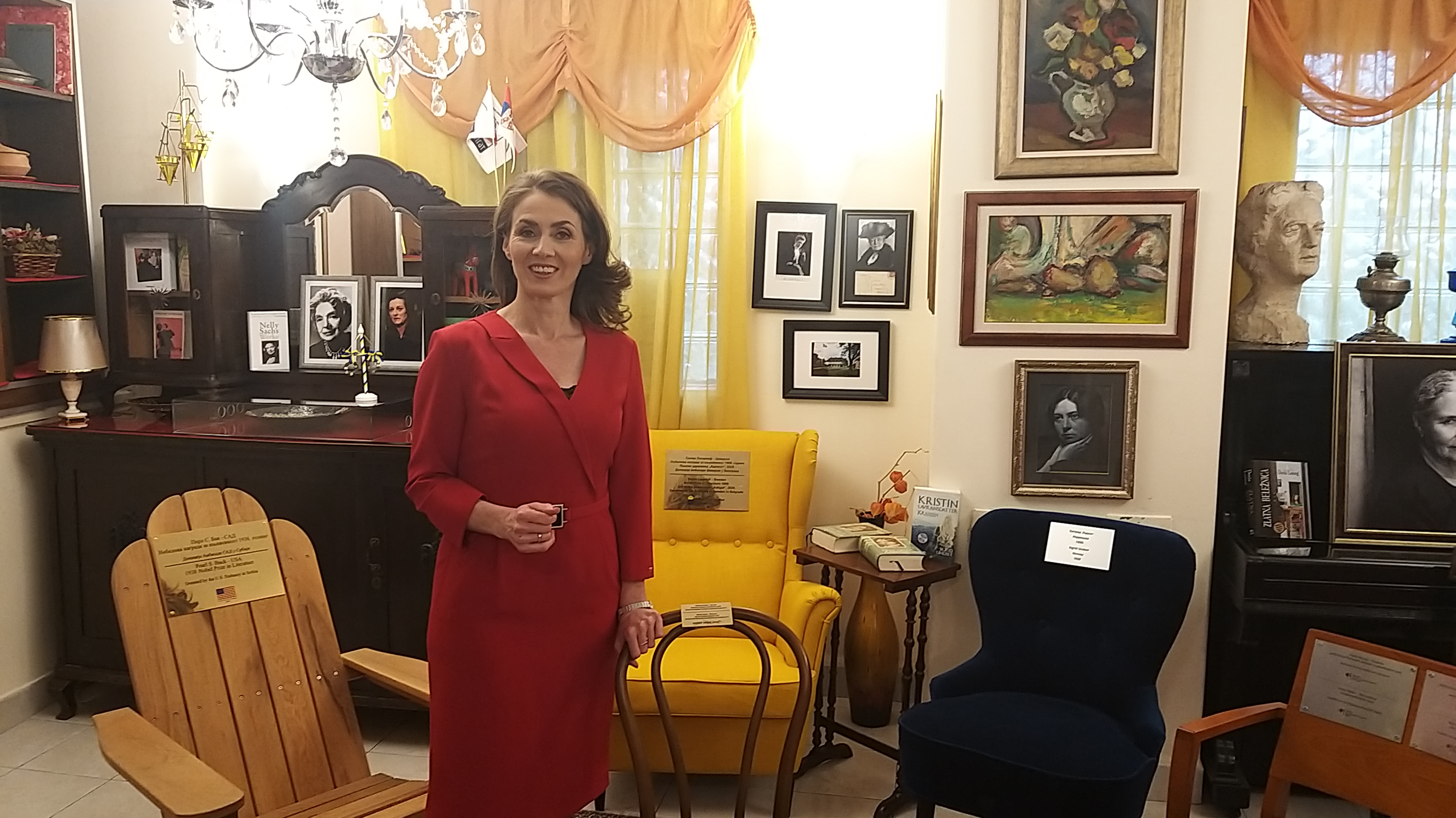We have adapted, we do everything from home and we have all the necessary platforms, so most of our colleagues work from home, and the six colleagues who work in the office, including myself, have carried out all safety measures and in addition to regular procedures, are also answering emergency phone calls.

In a time of the state of emergency and pandemic, the protection of equality is also important, and with that in mind, we spoke with the Commissioner for Protection of Equality, Brankica Janković, about discriminatory messages and abusive speech. At her initiative, it was suggested that citizens who informally care for others should be exempted in some way from restrictions on movement, as well as several other measures should be implemented so that it senior citizens, who have no immediate family, can make personal documents and live easier during the state of emergency. Last Friday, Commissioner Janković answered phone calls at the local Red Cross office to support the people living in isolation.
“Unfortunately, there are discriminatory messages and abusive speech on social media and women are still targeted more often. This time it’s the teachers, who are heroines of the day and are very dedicated to doing their jobs, teaching children online, as are female doctors and female journalists who are so committed to doing their jobs,” says Brankica Janković.
- How did you organize your activities?
We have adapted, we do everything from home and we have all the necessary platforms, so most of our colleagues work from home, and the six colleagues who work in the office, including myself, have carried out all safety measures and in addition to regular procedures, are also answering emergency phone calls. We are working on resolving most of the citizens’ problems in an expeditious manner, forwarding initiatives or recommendations with specific proposals to the Government or other relevant authorities such as, for example, issuing movement permits to informal carers of our oldest citizens or persons with disabilities, helping single parents with children care, renewing driver’s licence for senior citizens who have immediate family members and many other problems facing the most vulnerable groups.
Unfortunately, there are discriminatory messages and abusive speech on social media and women are still targeted more often. This time it’s the teachers, who are heroines of the day and are very dedicated to doing their jobs, teaching children online, as are female doctors and female journalists who are so committed to doing their jobs in providing information about the current situation at any given moment.
The novelty in this hate speech is that it is directed to the persons who fell ill with the COVID-19 virus and those people who have been in contact with them. These persons have been ousted and oftentimes stigmatized because of it. Also, our senior citizens have been the target of abusive speech as if their lives are less valuable than ours. Then there are people who have returned to our country from abroad who have also been quite stigmatized, as if they are to blame for the pandemic.
- How you spend your private time during the pandemic?
My work and my private time are intertwined. I’m slowly learning to function remotely because it looks like the time we’re living in will be full of uncertainty. We need to learn that and get used to these new business patterns. I do housework, which was long overdue, you know, I clean in bit more detail. I have found myself in the role of a teacher too. I have to say that I have surprised and that I am doing fine in all these roles. I thought that, as a lawyer, I was the worst at Math, but here I am, I am succeeded in helping my children do Math, at least the one taught up to the fourth grade, and I am enjoying the time spent with them.
- What will you do first after the state of emergency is abolished?
The first thing I will do when all this is over is to visit my parents and my sisters because I miss them so much. Then, I will throw a party with my colleagues; a small celebration to mark the 10 years of the Commissioner’s office. We are going to do a little retrospective and look back at everything we’ve been through during the pandemic, with the faith and hope that we will emerge from the greatest challenge in this century with a better understanding of each other worldwide.